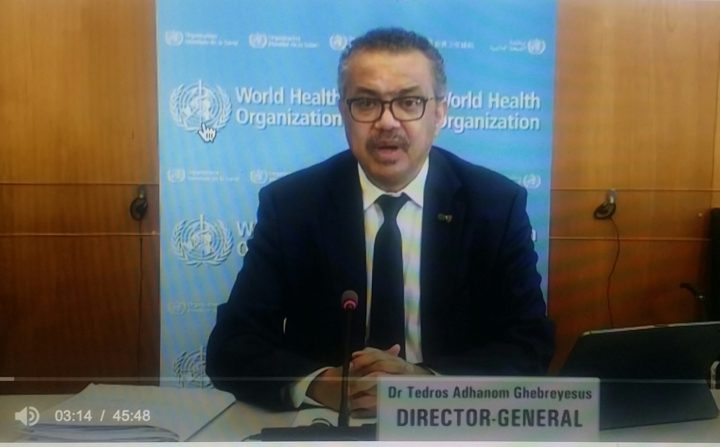The 74th World Health Assembly, organized by the World Health Organization (WHO), will be held virtually from today, May 24, 2021, until June 1.
The Assembly “will focus on the end of the COVID-19 pandemic and on the preparation for the next pandemic“.
In a press release, WHO has provided an analysis of the global situation:
Over the past year, cases of COVID-19 rose 40-fold to 162 million globally, while the number of deaths has increased 11 times, to more than 3.3 million.
The pandemic has hit all countries hard, but its impact has been harshest on those communities which were already vulnerable, who are more exposed to the disease, less likely to have access to quality health care services and more likely to experience adverse consequences (such as loss of income) as a result of measures implemented to contain the pandemic.
Later, it also acknowledges.
“But the pandemic is far from over and the global response is at a critical phase. Stark contrasts still undermine progress, with vaccine inequity being one of the most urgent issues, posing a threat to ending the pandemic and to global recovery – over 75% of all vaccine doses have been administered in only 10 countries; the lowest income countries have administered less than half a percent of global doses.”
In the face of this gap between poor and rich countries, which risks widening dangerously, “This year’s World Health Assembly will play a vital role in shaping the global health architecture of the future, and in strengthening WHO to fulfil its mission and mandate”, added Dr Tedros Adhanom Ghebreyesus, WHO Director-General.
Given its vital role in global health, we ask: Has WHO adequately responded to and managed the pandemic so far, and will it fulfill its mission and respond to the needs of populations worldwide? We will see in the coming days.










